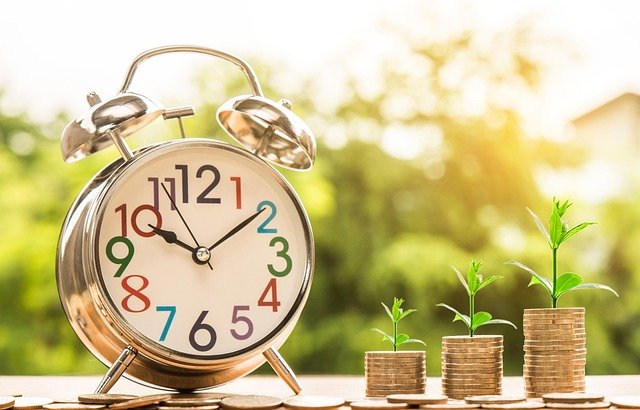Chronobiology: Unlocking the Secrets of Your Body's Internal Clock
Tick-tock, tick-tock. Have you ever wondered why you feel energized at certain times of the day and sluggish at others? Or why jet lag can wreak havoc on your system? The answer lies in the fascinating field of chronobiology, the study of biological rhythms and their synchronization with our environment. This cutting-edge science is revolutionizing our understanding of health, offering insights that could transform how we approach everything from sleep to nutrition.

The SCN, located in the hypothalamus, acts as our body’s timekeeper, responding to external cues like light and darkness. This internal clock helps coordinate various physiological processes, ensuring they occur at optimal times throughout the day. Understanding these rhythms can provide invaluable insights into maintaining health and preventing disease.
The Science Behind Our Biological Clocks
At the molecular level, circadian rhythms are controlled by a complex interplay of genes and proteins. Key players include the CLOCK and BMAL1 genes, which work together to activate other genes responsible for various physiological functions. These genes operate on a roughly 24-hour cycle, hence the term circadian (from Latin, meaning about a day).
Research has shown that disrupting these natural rhythms can have profound effects on our health. Shift work, for instance, has been linked to an increased risk of cardiovascular disease, diabetes, and certain types of cancer. This understanding has led to a growing field of chronotherapy, where medical treatments are timed to align with the body’s natural rhythms for maximum effectiveness.
Chronotypes: Are You a Lion, Bear, Wolf, or Dolphin?
One of the most intriguing aspects of chronobiology is the concept of chronotypes. These are classifications based on an individual’s natural inclination towards activity and rest at certain times of the day. Dr. Michael Breus, a clinical psychologist and sleep specialist, has popularized four chronotype categories:
Lions: Early risers who are most productive in the morning
Bears: Those who follow the solar cycle, peaking in mid-morning and mid-afternoon
Wolves: Night owls who hit their stride in the evening
Dolphins: Light sleepers with irregular sleep patterns
Understanding your chronotype can help you optimize your daily schedule, potentially improving productivity, mood, and overall well-being. It’s not just about when you sleep, but when you eat, exercise, and even socialize.
Chrono-Nutrition: Eating in Sync with Your Body Clock
Emerging research in the field of chrono-nutrition suggests that when we eat may be just as important as what we eat. Our digestive system, like other bodily functions, operates on a circadian rhythm. Insulin sensitivity, for example, is highest in the morning and decreases throughout the day.
This understanding has led to the development of time-restricted feeding strategies, where individuals limit their eating to specific windows of time each day. Early studies suggest this approach may have benefits for weight management, metabolic health, and even longevity.
Moreover, certain foods may help regulate our internal clocks. Foods rich in melatonin, such as tart cherries, or those that support its production, like complex carbohydrates, can aid in maintaining healthy sleep-wake cycles.
Chronobiology in the Digital Age: Challenges and Solutions
In our modern, 24/7 society, maintaining healthy circadian rhythms can be challenging. Artificial light, particularly the blue light emitted by electronic devices, can disrupt our natural cycles by suppressing melatonin production. This can lead to difficulty falling asleep and poor sleep quality.
However, understanding chronobiology can help us mitigate these effects. Using blue light filters on devices in the evening, maintaining consistent sleep and wake times, and exposing ourselves to natural light during the day can all help keep our internal clocks in sync.
Some innovative companies are even developing lighting systems that mimic natural light patterns, potentially helping to regulate circadian rhythms in indoor environments.
Chrono-Hacks for Optimal Health
-
Stick to a consistent sleep schedule, even on weekends
-
Expose yourself to bright light in the morning to help reset your circadian clock
-
Avoid caffeine in the afternoon and evening
-
Time your exercise according to your chronotype for maximum benefit
-
Consider your chronotype when scheduling important tasks or meetings
-
Practice digital sunset by avoiding blue light-emitting devices 2-3 hours before bedtime
-
Eat your largest meal earlier in the day when insulin sensitivity is highest
As we continue to unravel the mysteries of our internal clocks, chronobiology promises to revolutionize our approach to health and wellness. By aligning our lifestyles with our natural biological rhythms, we can potentially improve everything from our sleep quality to our cognitive performance. The key lies in listening to our bodies and respecting the delicate balance of our internal timepieces. In doing so, we may unlock a new level of well-being, proving that sometimes, the best health advice is simply about good timing.






